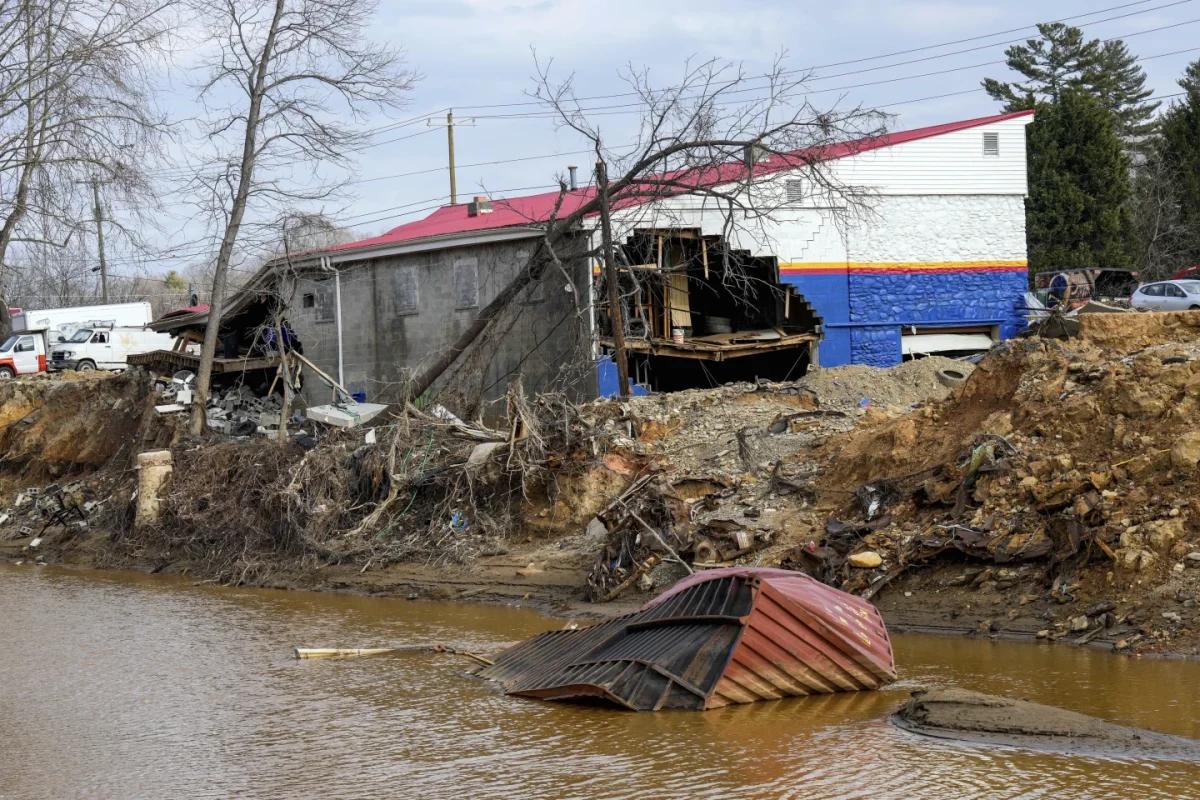Members and supporters of the Winston-Salem Professional Fire Fighters Association (International Association of Fire Fighters Local 682) assembled at City Hall during the March 17 City Council meeting to protest staffing cuts.
Last month, the Winston-Salem Fire Department temporarily eliminated overtime pay for firefighters, canceled off-duty training and reduced the department’s minimum daily staffing requirement, citing financial concerns. The department was previously on track to exceed its annual budget by between $600,000 and $700,000.
Normal operations will resume on July 1, 2025. Until then, as few as 79 firefighters may be on duty in Winston-Salem on any given day, a decline from the previous daily minimum of 89.
Union leaders have criticized the city’s decisions, arguing that the reductions leave fire crews understaffed and thus endanger public safety. The National Fire Protection Association recommends no fewer than four firefighters accompany fire engines and trucks when responding to incidents, but Winston-Salem fire crews now include only three.
Relative to firefighters in other major North Carolina cities, Winston-Salem Fire Department employees also receive lower compensation. Winston-Salem firefighters begin their careers with an annual base salary of $42,469.50, while new hires to the Charlotte and Raleigh Fire Departments earn $48,319 and $51,194, respectively.
According to the department’s most recently available annual report, Winston-Salem firefighters responded to 32,955 incidents in 2023, including 306 structure fires. These efforts salvaged over $488 million of property. The department also saved the lives of at least 16 individuals in 2023 through the successful administration of CPR.
An overflowing council meeting
Multiple fire trucks were parked in front of City Hall and the line for the metal detector and sign-in sheet snaked out the entrance. Well before the meeting began, all seats in the council room were filled, and attendees crowded the hallway outside. A city employee walked out to the hallway to request that the group be “patient.” She asked for all to remain quiet and silence their cellphones in order to hear the proceedings, but these efforts fell flat as the sounds of the council meeting echoed unintelligibly off the marble staircase. Later, employees opened another room with seats to accommodate for the overflow.
In addition to the large contingent of Local 682 members, firefighters from several nearby precincts were in attendance. Many donned shirts to indicate their affiliations: West Yadkin Volunteer Fire Department, 12M Firefighting Military Occupational Specialty and several more.
Ahmad Patrick, an employee of the Winston-Salem Fire Department and member of the Winston-Salem Professional Fire Fighters Association, said he came to the meeting to “try to support the local fire department.” He is following in the footsteps of his father — both are firefighters.
While introducing the issue to the council, City Manager W. Patrick Pate summarized improvements to the Fire Department that Winston-Salem has funded over the past decade. Since 2014, the city has increased the number of Fire Department employees from 343 to 400, renovated or replaced four fire stations, built a new fire station and completed other upgrades to the department’s equipment and buildings.
“To my knowledge, there is no department that has gotten everything that they wanted over the last ten years,” Pate said. “The council has always had to, in the budget process, seek to prioritize issues which include staffing, equipment, building, renovations, and other things.”
Community-wide support
During the public commenting period at the end of the meeting, several Winston-Salem residents shared their support for the firefighting union’s efforts.
Ashton Parrinello, the union president of the Winston-Salem Professional Fire Fighters Association, challenged Pate, raising several concerns regarding Winston-Salem’s overall approach towards compensating its firefighters.
“Our fire department is in a crisis,” Parrinello said. “Not only are we in a staffing crisis but we have a recruitment and retention crisis as well. We are not asking for luxuries here… we are asking to be on par with neighboring departments so we don’t keep losing firefighters. Firefighting is not a profession where we can cut corners.”
“Overtime may seem like an easy place to trim a budget. I assure you, what you cut in dollars today, we will pay for in lives tomorrow,” Parrinello continued.
Henry Murray, vice president of IAFF Local 582, the firefighting union in Greensboro, said that while Triad firefighters would like to see sweeping changes in their profession, the staffing cuts are most pressing.
“Concerns include pay, retention, facilities, morale, and a mishandled firefighter career ladder that delayed raises and time and rank, but right now we are asking for one thing — to staff the fire department at the level necessary to protect this city,” Murray said. “Right now, we do not have the resources to do the job at the level the city deserves, demands, and expects from this fire department.”
Firefighter Jason Gore reminded the council of the critical role the fire department played in responding to the Weaver Fertilizer Plant catastrophe in 2022. Vincent Messina, the secretary of IAFF Local 947, the Greensboro firefighting union, and Daisy Rodriguez, the mother of a firefighter, also spoke to express their concern.
Dan Besse, the at-large commissioner for Forsyth County, said he spoke from “the perspective of a long-term public budget [worker]” in recommending that the city return to its previous provisions for the fire department for the remainder of the fiscal year. Besse said it was “highly unusual” for a city to undertake such major discretionary funding decisions in the middle of budgeting cycles and urged the government to pause until it could conduct a more extensive review.
Community organizer Quamekia Shavers was the final speaker of the public commenting period who said, “I’m here on business, and I’m here on personal as well.” After presenting statistics on the Winston-Salem Fire Department’s accomplishments, she reflected on her own past interactions with the fire department when her daughter suffered from a series of seizures.
“I was a young mother and I was scared,” Shavers said. “The first people on the scene were always the fire department. They never treated me like I was slow. They never treated me like I was a bad mom… They were equipped to help me with my daughter in my time of need… that’s why I’m here to stand up for them.”











